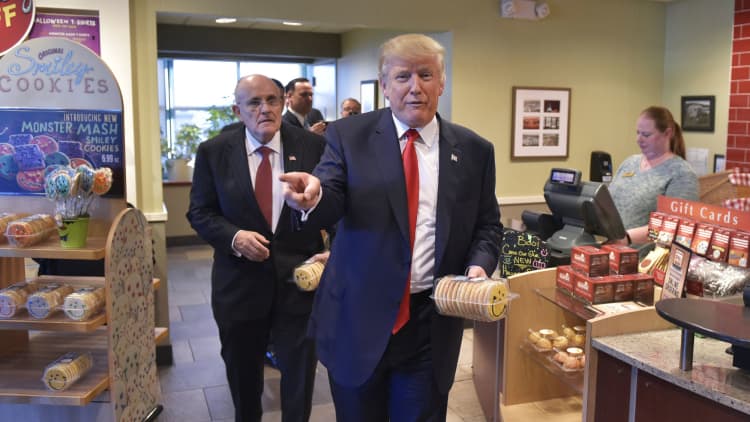
The promised policy trifecta of the Trump administration — tax cuts, deregulation, and infrastructure spending — should push the U.S. economy higher if passed, but a stall in may not mean doom for markets, Fidelity's Jurrien Timmer said Monday.
"There's actually globally synchronized momentum, and people lose sight of that because everyone is focused on the headlines. But the global economy is accelerating, and that's a good thing for earnings and for the markets," Timmer told CNBC's "Squawk Box."
Timmer, director of global macro strategy at Fidelity Investments, said the market has so far met President Donald Trump halfway by pricing in his proposed agenda.
"If you look at small caps relative to large caps, they went from a minus 12 percent spread last summer to a plus 18 percent spread in December," Timmer said. "Because small, domestic — they benefitted more from tax cuts, deregulation."
But unrelated global momentum shouldn't be discounted, and the "global synchronized expansion" could overshadow U.S. markets if Trump's agenda doesn't make it through Congress, Timmer said.
"Now, the S&P is catching up to the Russell; global stocks are catching up to U.S. stocks," Timmer said. "So it's not necessarily up versus down, but it's in terms of the leadership. The more momentum is lost, the more [global] stocks will catch up to U.S. stocks."
Mizuho Securities chief U.S. economist Steven Ricchiuto was not so bullish on global stocks' ability to push through a U.S. decline, however.
"If this loses momentum, we've lost momentum in the global economy as well," he said, arguing that the recent bounce back in global stocks may have been spurred by higher U.S. market sentiment.
"The global economy is going to stall, so I don't think the global economy argument holds much water," Ricchiuto said. "I think it's the domestic macroeconomic environment [that] really has to get its get moving, and we haven't seen that yet."
Correction: This story has been revised to correct Timmer's title.


